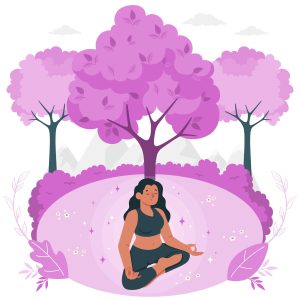
Non-Judgmental Mindfulness: The Key To Happiness
Our daily lives are often filled with judgment. When I say Judgment, I don’t necessarily mean a negative label. I mean, any label. What is

Our daily lives are often filled with judgment. When I say Judgment, I don’t necessarily mean a negative label. I mean, any label. What is

The purpose of this article is to help you be more aware of the nature of your smile through a simple mindfulness practice. Here are

In the hustle and bustle of your daily life, do you find yourself always on the run? Constantly moving from one place to another or from one

Since sleep is such an integral part of our well-being, let’s explore some of the reasons for ever growing sleep difficulties and how you can

What is mindfulness meditation? Mindfulness is a beautiful practice that helps us become rooted in life. It involves getting our minds back to the present

There may be difficult times in your life when you feel like things aren’t going your way. No matter how much effort you put in,

We experience our life in a collection of moments; some moments are big and impactful whereas some are simple and small. Why is it so

What Does it Mean to ‘Feel’? Our feelings are responsible for making sense of our experiences in life. They help us survive, form and maintain

Our mind is a powerhouse; from helping us make new friends, to getting us ahead in life, our mind does it all. It constantly works

We typically focus a lot on building good relationships with others. We are constantly trying to be ‘good enough’ so we can maintain our relationships

We specialize in combining psychotherapy with deep wellness practices like mindfulness and meditation and creating a customized mental health plan for individuals and organisations.
We specialize in combining psychotherapy with deep wellness practices like mindfulness and meditation and creating a customized mental health plan for individuals and organisations.

A young woman from another country moved with her family to live for one year in a town near the monastery. When, in the course of the year she discovered the monastery, she would periodically visit to have discussions with the Abbess. The Abbess introduced her to meditation, which became very meaningful for the young woman.
When the family’s year-long stay was drawing to an end, the young woman asked the Abbess, “In my country there is no Buddhism and no one has even heard about meditation. How can I continue to learn and deepen the practice you have started me on?”
The Abbess said, “When you return home ask far and wide for who, among the wise people, is recognized as having the greatest ability to listen. Ask that person to instruct you in the art of listening. What you learn about listening from such a person will teach you how to further your meditation practice.
― Gil Fronsdal, A Monastery Within: Tales from the Buddhist Path